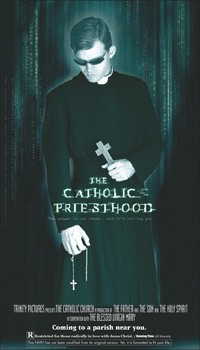In my occasional attempts to explain my religious experience and faith, I recently wrote:
I respect people who say that they are spiritual but not part of an organized religion. For me, however, personal spirituality is only half the picture. The other half is being in community with people who are also struggling to better themselves and who help me remember that I’m a small part of a large and complex universe.
It’s times like this–the aftermath of hurricane Katrina–when I’m proudest to be a member of a faith community. Yesterday, like most United Methodist congregations in the U.S. (or even, possibly, world-wide), our congregation took a special offering for hurricane relief. Our pastor related the relief efforts of other area United Methodist congregations and how we can participate in them. And another local church, St. Mary’s Baptist Church, has become the organizing point for hurricane refugees in our community. With the participation of other local congregations, we will do our best to support the refugees among us.
All of this made me realize how many people have given more of themselves because of the connectedness to others that they experience in their community of faith. And I’m proud to be a part of such connectedness and self-sacrifice.
As usual, Gordon Atkinson, a.k.a. Real Live Preacher, says it much more elegantly than I can:
While we prayed, I felt a mysterious sense of awareness. I felt that something important was going on, something beyond us and bigger than us. Something, in fact, so big that we have no need or desire to try to explain it, market it, promise it, or claim any kind of ownership of it. We were dear friends gathered in love and in the very name of God. It was a quiet episode and no record of the details exists. Our prayers were not recorded for sale in some inspirational book. No movie will ever be made about that moment in time.
And yet, this truth remains. I would do just about anything, go just about anywhere, and even sell most of my possessions for a chance to walk through life with these gentle pilgrims. I will own any label you please. Crackpot, dreamer, shoddy thinker, weak-minded. None of these matter for I have found the pearl of great price. And the transforming power of that discovery and of that joy lies at the center of my life.
The power of our shared community, which we call the Spirit of God, helps me to be faithful even when I am feeling faithless. It helps me to be trusting even when I am feeling cynical. It helps me to become like a child even when childhood seems very far away and long ago.
There is a truth here that is hard to put into words. It is a life truth, a living truth, a truth of sinew and muscle and shared history and held hands. It is a truth that is utterly beyond us and somehow within us. It is a truth that makes us feel so small and childlike that we may have slipped, unnoticed, into the very Kingdom of Heaven.
Something out there is much greater than I. I am aware of it and in awe of it. This is the beginning and the end of Wisdom.


